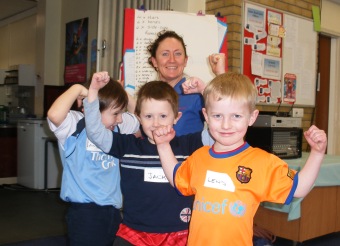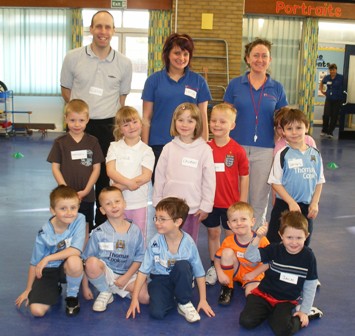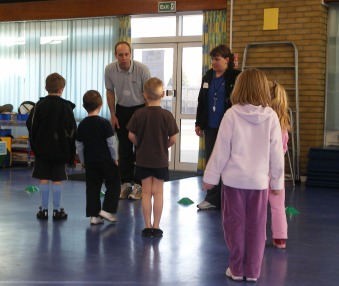
“Flixton Fit For Work is offering what employers want: practice, knowledge and experience”


Fit for work in Trafford and beyond
Models of effective good practice in sports development are not so common that one falls over them but Mick Owen recently unearthed a gem of project in south Manchester quite by accident

“Flixton Fit For Work is offering what employers want: practice, knowledge and experience”


There is an old saw that goes, “An idea doesn’t care who has it”, which should be made the motto for sports development practitioners everywhere. Copying, thieving or ‘adopting models of good practice’ have been the basis for the development of healthy structures, systems and initiatives for decades but, with the ubiquity of the big agencies threatening the homogenisation of the sector, the need for local innovation has never been more pressing. Is anyone out there doing anything more than delivering a centrally written, hand-me-down work programme? The answer is ‘yes’ and one can be found in south Manchester.
Flixton is a suburban enclave just an aerial off drive from Old Trafford where one-time sports development firebrand Sarah Carmichael has taken the role of partnership development manager (PDM) at the Flixton Girls’ High School specialist sports college. Formerly a shaker and mover at Oldham MBC and Sport England, Carmichael was an industry leading light in the North West in the nineties when her drive and originality turned thoughts into action and ideas into projects. So it can be no real surprise that she has come up with a bright idea and, thanks to the hard work and professionalism of community sports development officer Kay Statham, developed it to a stage where it is a model of practice that is attracting attention well beyond the metropolitan borough of Trafford.
Simply put, Flixton Fit for Work (FFFW) uses the power of sport to attract the long-term unemployed, assisting and supporting them back into work within the sport and leisure industry. Local candidates are interviewed and their needs, desires, skills and experience profiled; each candidate is helped to complete a personal action plan and then given the free training required to fit them for the work they have identified. Along the way the candidates are given personal support, confidence-building training, mentoring and a placement in the area in which they want to work. Most of the early graduates chose the coaching route but current candidates are targeting careers in leisure centre reception areas, pool sides and plant rooms.
The challenges of worklessness may seem a little distant from the experience of the average reader but it is a debilitating, confidence-sapping state that takes real motivation, determination and support to fight. Louisa Tunney, a FFFW candidate, paid tribute to the ground-breaking scheme: “Before getting involved in the project I had been out of work for seven years. The project has enabled me to build up my confidence and enter a completely new area of work. I have always had an interest in sport but didn’t have any training or qualifications so I thought it would be too difficult for me to do.”
In the first two pilot years of the project Statham has helped a relatively small number of people back into work, mainly in coaching roles in and around the school day where the bulk of Trafford’s mainly voluntary coaching workforce cannot be deployed. The positive effect on the confidence and fundamental skills among the children who have received the newly employed coaches’ ministrations has been palpable. Indeed, there is an impressive body of evidence that argues that this project should be extended and, yes, copied.
For those thinking of stealing the idea, the key questions go to the sustainability and funding of such a project. Clearly the first ingredient is a PDM with vision and a community plan that is more than a funding requirement. Add in your local sports development unit and leisure facility management team; the nearest open-minded FE College and the likes of Connexions and Jobcentre plus, and you have the makings of the necessary network. Carmichael and Statham have also attracted the support of their county sports partnership Greatersport.
The final word on the worth of the initiative goes to Greatersports’s education and skills manager, Alexandra Moore: “This project is answering national and local requirements to tackle the worklessness agenda. FFFW is offering what employers want – practice, knowledge and experience. In addition to this candidates are gaining broader experience of coaching, for example long-term athlete development, and this will enhance their employability. FFFW candidates are more like to get a full-time or part-time role than other coaches.”
Kay Statham can be contacted by e-mail here.
© Copyright of all material on this site is retained by The Leisure Review or the individual contributors where stated. Contact The Leisure Review for details.